| Bands: | Unhallowed Deliverance |
| Release: | Of Spectres and Strife |
| Genre: | (Technical) Death Metal |
| Country: | Germany |
| Release Date: | 10th of May, 2024 |
| Released via | Self-Released |
| Cover Artwork: | Kaja Kumor |
When a band pretty much steps into the game out of nowhere, straight up delivering a self-released full length debut that blasts you off your feet, there are quite a few questions that need to be asked in my opinion. This is exactly what Unhallowed Deliverance did with the release of their Of Spectres and Strife. Since there were quite some aspects about this album that I was keen to find out about, the guys from Unhallowed Deliverance were nice enough to answer questions primarily regarding their full-length debut.
Interview with Unhallowed Deliverance

Hello and welcome Unhallowed Deliverance! I’m very glad that you’re able to take your time to talk to us at Transcended Music Blog. How are you doing lately?
Arthur: Hello Roman, thanks so much for inviting us! We’re doing quite fine. It’s been a busy few weeks, mostly filled with a lot of work and university stuff, but I’m absolutely eager to get back on stage next month and very excited for this interview.
First of all I think it might be helpful to start off taking a look at who Unhallowed Deliverance is. Feel free to introduce yourselves! Since I already found out that you seem to be quite a nexus within the underground Death Metal scene, it might also be interesting to explain what other projects you are involved in.
Arthur: We are a five-piece parable production plant aiming to take the knife to the supple throat of our society’s set-in doctrines. To execute our plan of delivering the world from its sacred spoils we employ the vast instrumentarium of death metal and combine it with a clear focus on catchiness and songwriting, while rhyming of all the world’s torments in a stylized and mostly quatrain tongue. And like you said, we as well like to participate in the interwoven cesspool that is the NRW heavy music scene, to which this band really has been our gateway.
Szymon: Being a part of Unhallowed Deliverance is what actually got me deeper into the scene. It was our drummer Phil, who as a session drummer for Stillbirth recommended me to become their new guitarist. Apart from that, I’m also a session guitarist for local titans and dear friends Diaroe, where our very own Markus slaps the bass full-time. Fun fact: he’s also session bassist for Stillbirth – one could say Unhallowed Deliverance is kind of a comical representation of how interconnected our scene is. Apart from that we also have other projects beyond the death metal realm. Dominik has a solo progressive rock/emo project, Markus is active in jazz and funk, and I am a psytrance DJ.
It certainly is quite evident that you are tied to the strong network that surrounds NRW Death Metal legend Stillbirth. Were there any specific benefits you could experience from this network that helped the takeoff of you as a band?
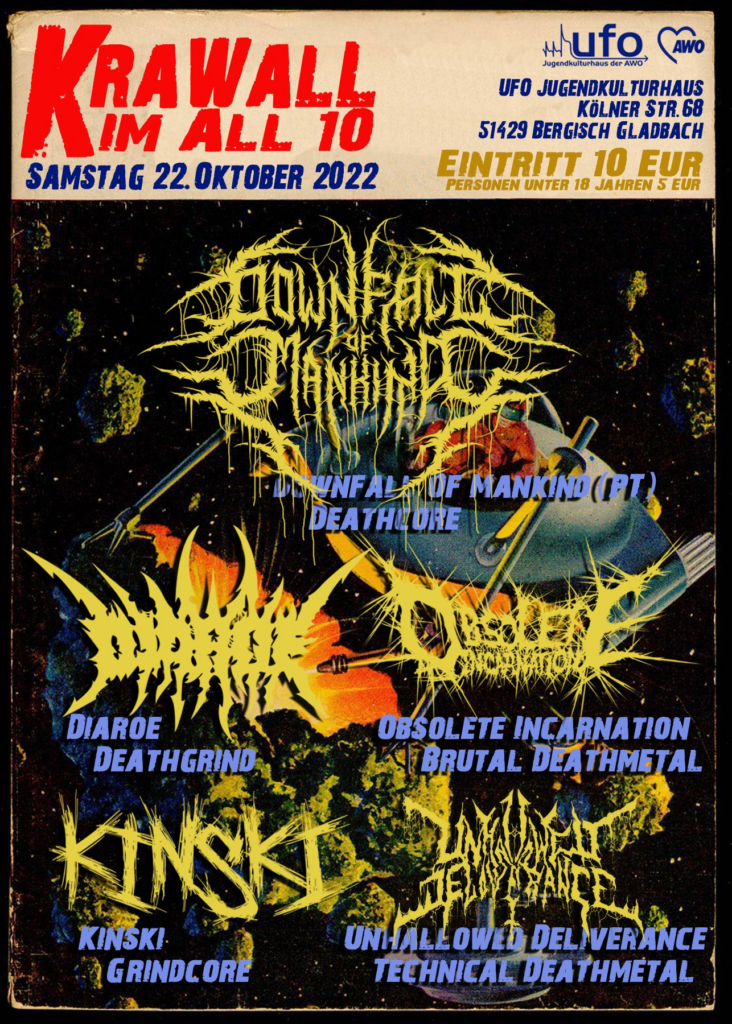
Szymon: The experience I gathered when touring with an established well-known band definitely helped me acquire a more practical, goal-oriented mindset, both in creating the soundscape of our music, and in defining what we actually want to achieve with it. Also, infiltrating the scene from within got us a few amazing gigs, great connections – both professional ones and friendships, and a general headstart in establishing our name in NRW death metal.
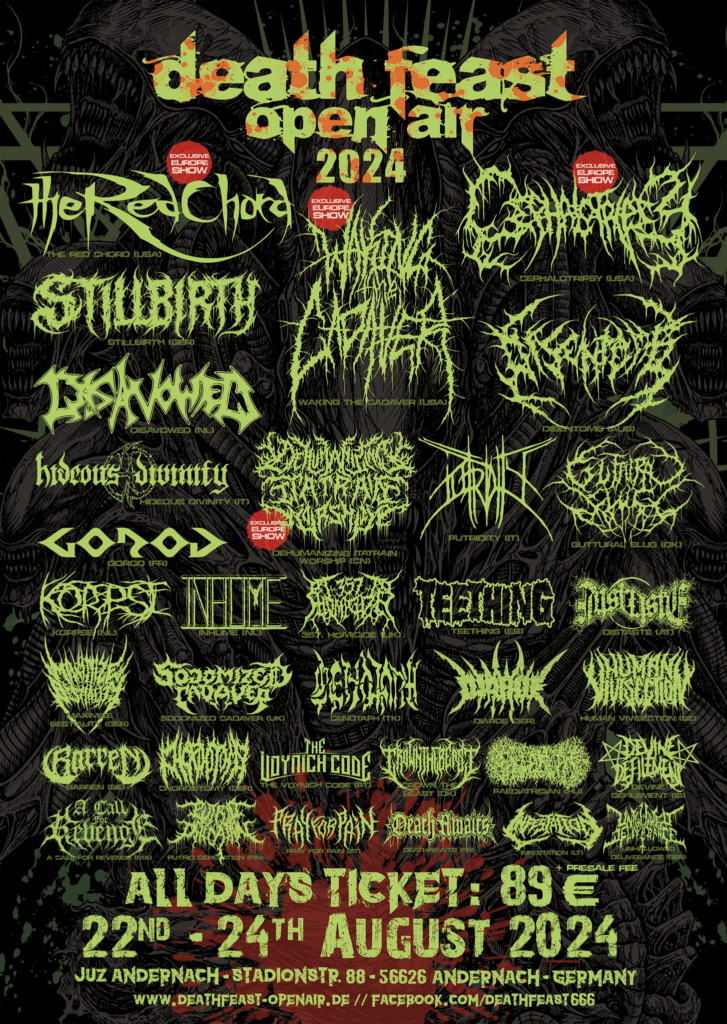
Phil: Our connections and friendships we made through playing with Stillbirth and Diaroe helped our band a lot! The opportunities it got us were incredible experiences, starting with our debut show at “Krawall im All” in October ‘22 and including our recent signing with DF Booking as well as our upcoming slot at this year’s Death Feast Open Air.
But for me personally it had another effect: When I was first invited to do session work for Stillbirth I was practically still a beginner and had never played drums live before. So I had to practise a lot in order to keep up with this challenge and their music. This and the feedback from the band improved my playing immensely and as a result helped with writing and playing the UD drum parts. I would not be the drummer I am today without them since they really pushed me more than I ever did before.
I’d say that it could be quite easy to understand how some of you got to know each other before forming this band. However, especially when you have musicians who are already pretty active in other projects it is interesting to ask – how did the idea come up to form Unhallowed Deliverance?
Arthur: Holy hell, that is a long story, but I’ll try to give a small overview. The idea, the name and the logo came up quite a few years back, in late 2017, when Markus and I went to christian high school together. We vaguely knew each other because we had overlapping friends in elementary school and were grouped together in advanced maths course with our then-guitarist Mike. Markus didn’t listen to metal back then, but we had the idea to play “Murmaider” by Dethklok during a school concert more so as a joke. This joke however then implanted itself in the back of our brains and a few months later we actually pulled through by covering Gojira’s “Silvera” and “The Gift of Guilt” and a censored and desatanised version of “O Father O Satan O Sun!” by Behemoth. This desatanisation however turned out to be not enough, as a group of christian mums in the PTA filed a formal complaint that our performance was a, and I quote, “glimpse into hell” and should not be allowed at a christian school. Multiple invitations to the principal’s office followed, but to our teenage mind this of course only served as an amplifier to our convictions. We decided to stick together and voilá, Unhallowed Deliverance was born.
Szymon: After school years the project stayed pretty much inactive, with only Arthur and Markus trying to find musicians to join them. Phil and I met the two at some local concerts, first time when Cattle Decapitation played in Oberhausen at the end of 2019. The breaking point was Decapitated playing in Kulttempel just a few days before lockdown in 2020 when the four of us realised we all were musicians and played the exact instruments we needed. That’s when Unhallowed Deliverance was reborn – we scratched all the past projects and wrote Velvet Skin to test out the waters with the new lineup. During the pandemic we stayed pretty much dormant – it was the fall of 2022 when we actually finally started working together, recorded Velvet Skin, and played our first gigs, at which we met Dominik, who then joined us, completing our five-piece lineup.
In May 2023, you released your first track “Velvet Skin” that already casted some light on the question of what sound we could expect from you guys. It then took about a year for you to release your full-length debut “Of Spectres and Strife.” This has been out for more than two months now – how do you feel about the perception of this album by now?
Szymon: I think none of us actually expected how hard and exhausting releasing an album is going to be, and frankly, by the end of the production process, after many hours of songwriting, recording, and heated discussions about every single miniscule detail I believe we all just wanted to get this over with and release it with no regard for what the reception would be. In the end the most important thing for us was that we liked what we created. We liked it, though we did not expect reception that positive. We received overwhelmingly positive feedback from around the world, both from random fans checking out the links I spammed all around the Internet, and from small independent reviewers. It is a heart-warming feeling to hear that OSAS is an AOTY contender for anybody. I, personally, don’t believe it is (be it self-criticism or being humble), but I am flattered that someone does.
You self-released “Of Spectres and Strife” both on 12” vinyl as well as CD. How did you come to this decision? Were you interested in releasing your album via a specific label or did you intend to self-release the album right away for the sake of DIY?
Phil: We actually didn’t plan that much at all when writing the album as none of us (except Dominik) ever released music before. We thought about different possibilities, tried some things and even applied to multiple labels.
However, we eventually decided on self-releasing after a somewhat successful DIY release of our debut single “Velvet Skin” and all of us being eager to finally put out more music.
We definitely underestimated how much time and work (and money) releasing an album takes and in retrospect we would have done a lot of things differently, but this was an important experience for us and taught us valuable lessons from which we hopefully learned something for future releases.
If there was a label interested in re-releasing your album on whatever format you’d like – would there be any specific labels you’d be interested in?
Arthur: Oh, that is a tough question to answer as there are so many awesome labels out there, but if I had to pick one, it would probably be Season of Mist, just because they have so, so many inspiring and diverse artists on there that I really enjoy, from well-established legends like Abbath and Cryptopsy to my favourite modern black metal bands Der Weg einer Freiheit and Gaerea. And when it comes to tech death, no one holds a candle to SOM: Beyond Creation, Archspire, Ophidian I, Virvum, Wormhole, Defeated Sanity, Gorguts, Wormed, it’s almost too many to count, and I think we would fit quite well into that lineup, especially because we have the slamming touch that they don’t really feature yet. But then again, that’s a pretty lofty aim, so we’ll probably just stick with DIY for now.
Did the fact that you decided to release your album on 12” recycled vinyl follow the ideas that also find presence in the content of your tracks of the album?
Arthur: In a certain way, yes, not necessarily by directly following any concrete ideas discussed on the album, but by it being a decision made based upon our worldview, and once we saw that the good people over at Matter Of Fact Vinyl who pressed our album offer this, we were immediately sold. And the resulting individuality of each record is also a pretty cool side effect.
After the single release of “Velvet Skin,” the release of your full-length debut immediately followed. This is a bold move, going by the fact that some bands tend to start off with numerous demos or EPs before heading towards their first full-length release. Was the writing process for you as a band strong enough to immediately come forth with a full-length or did you actively intend to step into the game with a full-length release right away?
Arthur: Well, like I said earlier, especially in the early phases of the band we wrote multiple songs and fragments and recorded some demos that we could have released, but in retrospect, most of these were so god-awful that they didn’t match the quality of what we were listening to, which is why we repeatedly postponed deadlines, scrapped drafts, and started anew. This all changed when Szymon and Phil joined the band. For years we had been stuck in this limbo state and focused on improving our skills instead of releasing material, and now we had found a stable line-up to really get things going. And from there it kinda all just happened.
Szymon: The process of creating OSAS was very chaotic, since none of us had any idea what the hell we were doing. I wrote single songs with the intention to primarily play them live, knowing we would have to release something one day, but not thinking about it actively. It was just a random moment when we realised „hey Velvet Skin is out so people can check out how we sound and if I write like 3 songs more then we’ll have an LP, let’s just do this”. The fact that OSAS was created that way, that some songs were written over 2 years apart, and that the creation was primarily us learning „how to band” made the album look more like a single compilation in my eyes, where every song represents a different phase of our journey.
When reading the introductory posts of your band members on Instagram, it is possible to get at least some overview of the musical influences that brought you guys together. Nevertheless, I wanted to ask – are there any overarching bands / musicians that directly influenced the style you play – be it the overall style or specific instrumentation?
Szymon: I believe each one of us brings a different set of influences that makes up our style. I mean we all love death metal, but in a slightly different way. You can hear my love for groovy riffs by the likes of Decapitated or Dying Fetus, Markus’ fascination with Archspire’s crazy tappy basslines, Phil’s Meshuggah inspired grooves, Dominik’s passion for dissonance and melancholy or Arthur’s wicked vocal acrobatics that always remind me of Cattle Decapitation or Infant Annihilator. Add some bands like Revocation, Organectomy, Aborted or Shadow of Intent to the mix and sprinkle it with some thrash metal influences by the likes of Havok and I think you’ll have a pretty accurate idea of what influenced our music.
I feel that the domination of Death Metal subgenre styles still heavily lies in the spheres of Cavernous Death Metal – although slightly progressing recently. When listening to the tracks on “Of Spectres and Strife,” the overt technicality and the elements of slam just can’t be denied. Was this a specific style you chose to play or did the strong technical drive develop while writing music?
Arthur: Yeah, I would agree, I feel that you have two diametral factions within modern death metal right now that define the zeitgeist most, a dichotomy that you can find in slam as well. On the one hand you have these really blood-soaked and visceral acts with a more grimy and “old-school” production like 200 Stab Wounds, Sanguisugabogg, Snuffed on Sight or Vomit Forth, all of them becoming popular in the 2020s and having a lot of adjacency to the hardcore scene. And then you have the more technical, intricate and cleanly produced acts like Abominable Putridity, Wormhole, Organectomy or Analepsy, many of them produced by the legend Miguel Tereso of Demigod Recordings, where we also had “Of Spectres and Strife” produced. On this spectrum we clearly fall into the latter category, although this wasn’t necessarily a choice we consciously made.
Szymon: I’m just not really into the old school sound lol. Autopsy who?
Phil: I think the fact that we met at shows of Archspire and Beneath the Massacre and later of Decapitated and Beyond Creation tells you a lot about the stuff we listen to and who influenced us. Also Markus being an absolute beast on the bass added a lot of technicality to our earlier songs that were otherwise not really that technical in the first place.
And just like Szymon I’m not into that OSDM sound either lol.
The artwork of “Of Spectres and Strife” shows a burning building that might be in the shape of a smaller castle, depicting dead people that are evidently eaten by pigs. What exactly can we get from this comparably precise artwork?
Arthur: I think you can interpret it in different ways, but in my eyes it depicts a perversion of progress. The building is both factory and house of worship, an industrialised cathedral, triumphant in size, but unsalvageably ablaze.
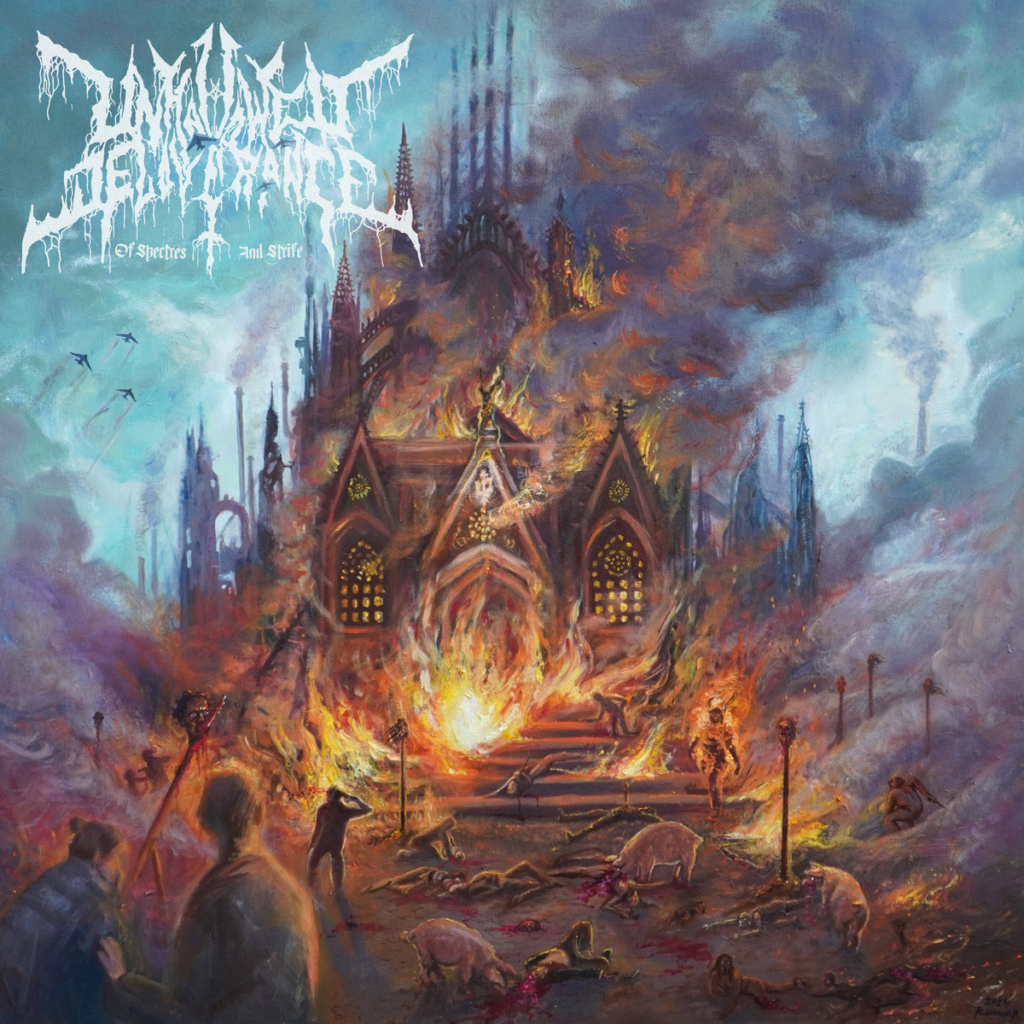
Even with the flames erupting from its insides and doom practically assured, the engines within keep running, coughing black smoke into the blue sky, where it merges and dissipates into the clouds. All this might and all these engines though are in the end just machinery, and can’t stop the human mayhem unfurling before the gates of the church, with the faithful burning at its feet, transforming into naked shadows and falling to savagery. Their corpses are finally being devoured by pigs, levelling them down to carrion and closing the circle of nature that we are -despite our delusions of grandeur and all our palaces- inescapably a part of. The bomber squadron approaching from the distance also suggests that this faith factory is a military target as well, so one can only guess what tools of horror are being constructed within.If you look closely you can see a lot of awe- and gruesome details that our amazing artist Kaja Kumor added, and I think there is a lot of individual symbolism that one can draw out of them.
To a certain extent, your musical style could be introduced by pointing at the technicality, speed and brutality of Archspire and the lyrical interest and finesse of Cattle Decapitation. Is this a general explanation you’d be okay with?
Arthur: No doubt about it. I think it’s safe to say we all are not just okay with this explanation, but feel very honoured and thankful for it and perceive it as a very, very big compliment.
The content of all of the tracks on “Of Spectres and Strife” are quite specific and address issues that have been utterly present to this very day. Addressing quite broad topics from a very distinct perspective, how can we imagine your songwriting process both of lyrics as well as instrumentation?
Szymon: I have to confess that I wrote all but one of our songs instrumentally with no idea what the lyrics would be about. I just kind of went with the flow and made sure the song flowed right instrumentally.
Arthur: Once the instrumentals were written, I usually had a small set of ideas or themes that I could imagine working for a song, some based on certain rhymes or verse scraps, some just vague concepts, which I then weighed depending on the intended vibe of the song. Then I try to set a certain story or message that I want the text to ultimately convey. And from there I just build the text rhyme by rhyme and verse by verse as I go along.
Szymon: The only song that was written the other way around, with lyrics being written before the music, was Hope, Drowning, which was also chronologically the last song we have written. We realised this kind of workflow allows us to focus on storytelling even more and lets us create more engaging, immersive songs, which is why we want to stick to that formula for whatever we release next.
When following the content of the tracks on your full-length debut, it feels as if there is an overarching evil that is addressed in almost all of the tracks. I feel as if attributing this to the factor of capitalistic impacts on the economy alone might be underwhelming the lyrical finesse that is showcased on this album. Is it possible to denominate this overarching evil?
Arthur: The most overarching and central evil of history: the unfathomable depths of human wrath and our limitless potential for conflict. When focused and united, humanity is capable of the most incredible of feats and yet we still somehow find a way to grind ourselves down on all of what we achieved. We grind ourselves over our beliefs, our relationships, our ambitions, our religions, our ethnicities, our cultures and our colours. And this innate and animal compulsion for clashing against our fellow humans and our own minds is the scourge at the core of the album.
Going by the fact that your album was released just a few weeks before the European election – which is closely associated with possible future predictions regarding the progress of economy and climate – did you think of your album when having taken a look at the poll?
Arthur: I certainly hoped that I would not have to think of it after coming out of the ballot room, but unfortunately some of the feelings I had while writing “Treatise on the Lowest Form of Man” or “We Slither” were reinforced by seeing the outcome of the election. I wasn’t surprised, necessarily, as there had been a clear trend in the polls that was proven to be true, but it was still a sad thing to witness how strong nationalist and borderline fascist parties like the AfD, the FPÖ, the Rassemblement National or the Fratelli d’Italia became. It was also a stark reminder of how important the continuous fight against these forces is, and I still stand by what I said on “Treatise”: the strongest weapons we have against these people are education and societal reforms. Frustration is the soil in which the Lowest Form plants its lies, and to counter this frustration we’ll have to create a world where not so many people feel isolated, left behind or disadvantaged, and we’ll have to do it soon, as the time we have to use these metaphorical weapons is running thin. There is already war in Europe, and there has been for decades in other parts of the world. Soon, more desperate measures will become necessary because the possibility for reform and education has been undermined by disinformation and moral corruption, and I’m afraid that some of these measures might not work out. A good example is the US, where not even a criminal conviction can stop Trump from rerunning as president, because the informational damage has already been done. We in Germany have a democracy that is a tiny bit more robust thanks to the dependency of parties on coalitions, but that’s not to say that it isn’t severely under threat here as well. It’s not all bleak though. In Sweden, Denmark and Finland the right-wingers lost more than they gained, in the national election in Poland last year you had a similar effect with PiS losing a lot of votes, and now most recently with the thwarted takeover of Le Pen in France there is proof that fighting these forces pays off.
In the beginning of “They Will Eat Us Raw,” the song can be perceived as portraying the perspective of humans killed by cannibals. However, taking a closer look, the specific wording in the lyrics sometimes implies that we are rather taking a look at the horrors that take place in a regular slaughterhouse from the perspective of an animal. What is the perspective that is conveyed on this track?
Arthur: I wanted to have a song on the album that covers factory farming, for one because it is a theme that lends itself remarkably well to extreme metal lyrics with all the guts and gore around and of course due to Travis Ryan being one of my biggest influences. To put my own spin on the matter I did not want to resort to the Cattle Decap signature “humans put in animal situations” setting but instead tried to ask myself: What thoughts and notions would a pig go through, if it had the same capacity for contemplation as us humans do. Would it fall to desperation? Would it reach these same extreme states of consciousness that us humans enter once confronted with the looming void of death? And if so, what transcendence would it draw out of this?
I would postulate that humans become their most spiritual and most reverend in this exact cognitive limbo between the anticipation and the acceptance of death. Our pig is no different. It has long ago realised that the final fate drawing closer is inevitable and all resistance merely a prolongation of its pain, but despite ultimately knowing of the hell ahead it clings to a last glimmer of hope, that some god will deliver it from its suffering and lift it out of the dark and dirty place it is trapped within. This unacceptance, or rather this hope is what transforms the pig from a piece of livestock to a sacrifice, maybe even to a martyr.
Unfortunately for our pig though, its final breath contains no bright light guiding it beyond, no warm voice welcoming it to paradise, but instead a grim, final epiphany, that it will be flayed, sawed and eaten raw.
Now by extension we could ask ourselves: does this futility of sacrifice extend itself to the martyrs of old and new as well? Are they the same? Can we change the world by enduring suffering? Or were the crucified disciples also just meat in the maws of the many? These are questions to which I don’t have the answer, but maybe we can offer a single, if slightly cynical perspective on the matter.
When browsing the lyrics on your full-length debut, I have to admit that it is very obvious to see the length of the lyrics on almost all of the tracks. There is a lot that had to be said on this album and I highly favour both content as well as songwriting. However, I was wondering what precedes the songwriting process. Do those lyrics find their length in the fact that you as a band feel that there is something that has to be said or does the length of the instrumentation sometimes also prolong the lyrics of the track?
Arthur: Definitely the prior. If anything, the lyrics prolonged the instrumentation. For most of the tracks, instrumentals were written first and lyrics then fitted on top, and I would frequently find myself getting too excited with the topic I was covering and writing lyrics for every single part of the song. “Mass Grave Doxology” and “They Will Eat Us Raw” are good examples for this, as we had to repeat certain parts more often than planned to accommodate most of the lyrics and still have some passages where the instruments can breathe. The main exception to this rule, like we said earlier, is “Hope, Drowning”, to which I wrote the lyrics first, and coincidentally it is also the shortest text on the album. And like Szymon already said, that’s an approach that we’ll try to use more on the next album, as it also lends itself better to synchronising lyrical structure with songwriting.
Still going strong with the release of “Of Spectres and Strife,” we are already able to see you perform at the upcoming Deathfeast Open Air in Andernach. What are your plans for Unhallowed Deliverance in 2024 or during the upcoming years?
Arthur: Well, what’s most likely going to happen is that we’ll chill on my couch and smoke a whole lot of weed. But apart from that, we’ll join Stillbirth for a few dates on their summer tour with Disentomb, something that I’m extremely excited for as they are one of my favourite brutal death metal bands, then head on down to Bavaria to play Mammut Festival and a few small shows here and there. Hopefully next year we’ll get to play a few shows outside of Germany as well, that’s something I really hope for. And then in general just continue on the path that we are currently already on. Write more angry music, play more shows, connect with more metalheads and get to meet more great bands. And feel very thankful 100% of the way.
As usual, the final words of this interview belong to you. Thank you very much for taking your time to answer these questions and feel free to finish as you will.
Arthur: Well, thank you again so much for inviting us, it’s truly been a pleasure. Thank you for all the stuff you do for the scene and your awesome channel, the NRW scene wouldn’t be the same without you, Roman. And thank you to whoever out there will be reading this, we truly appreciate the interest in our silly, little metal. Keep your music brutal, but your soul gentle. And be kind to one another. That’s all.

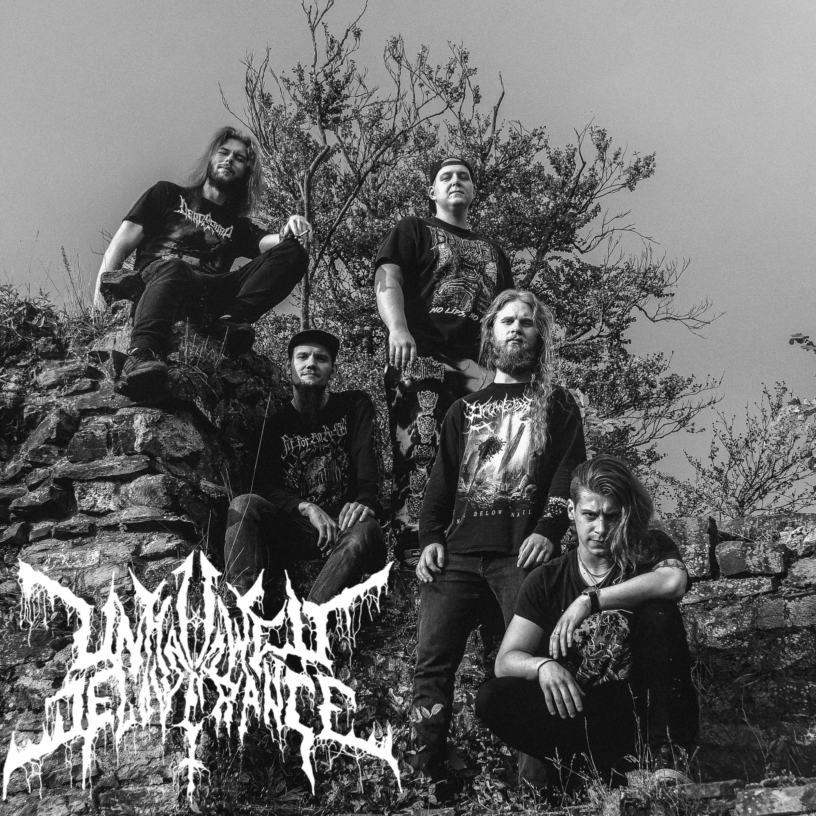
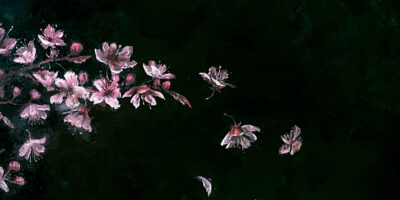
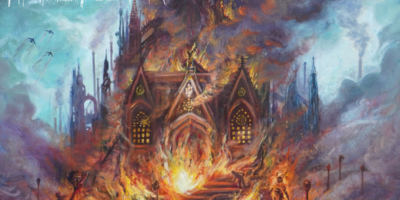
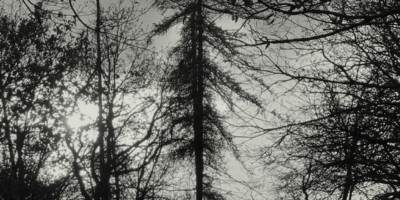
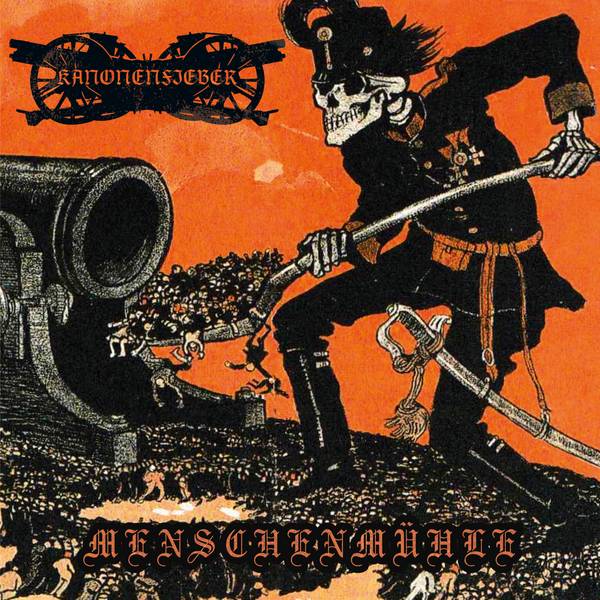
Leave a Reply